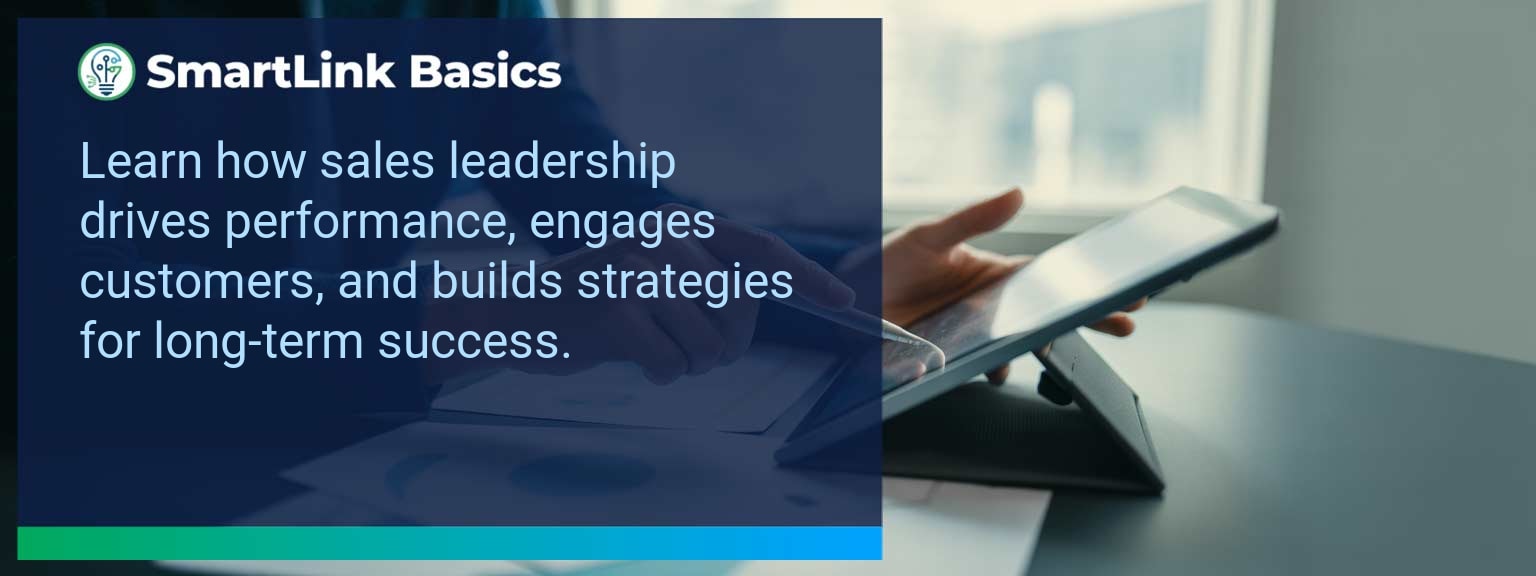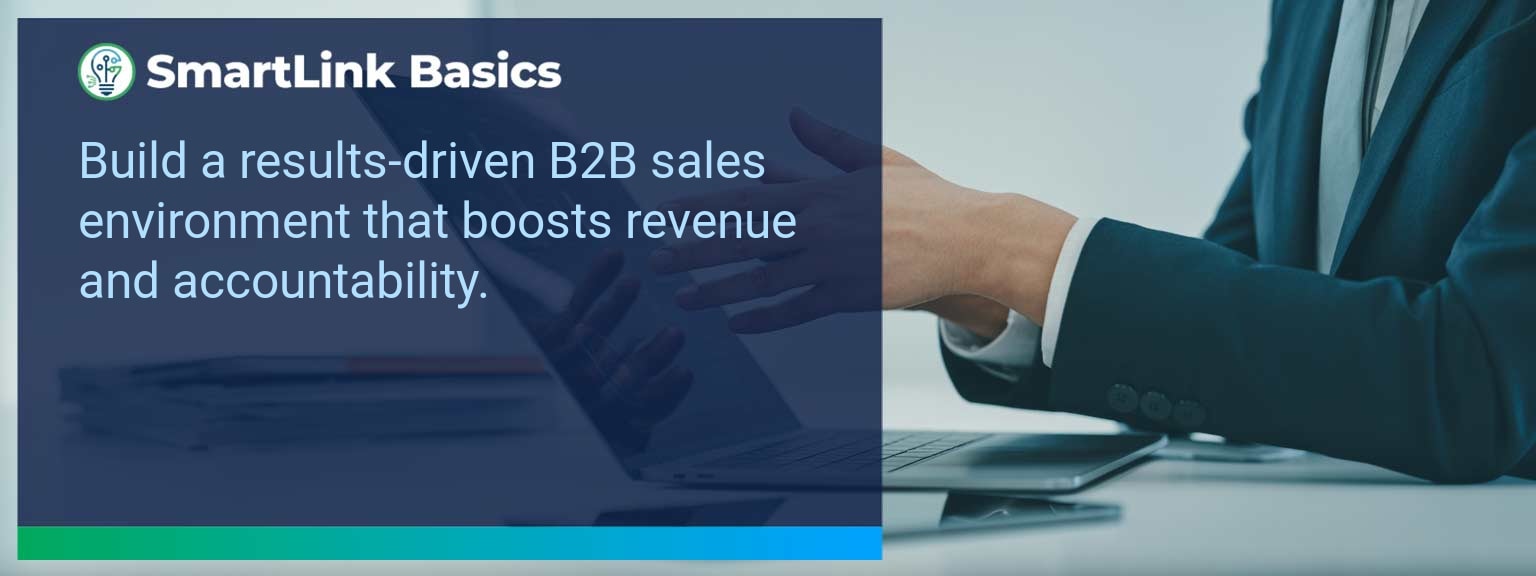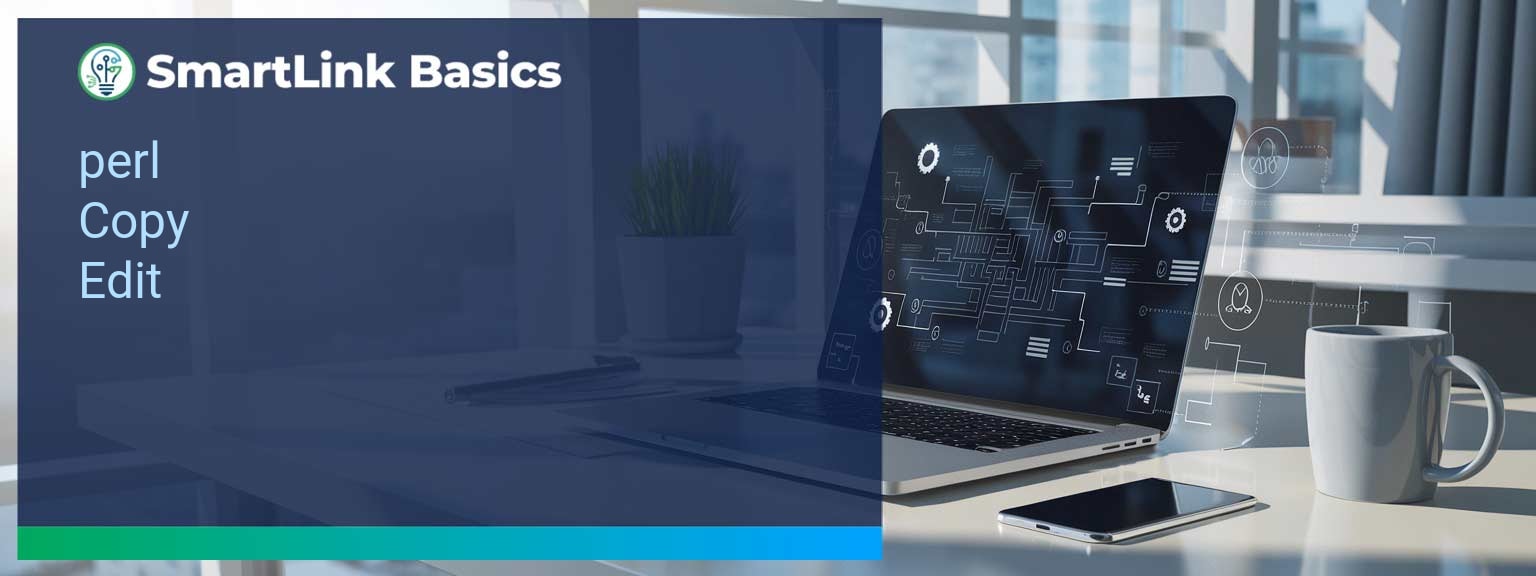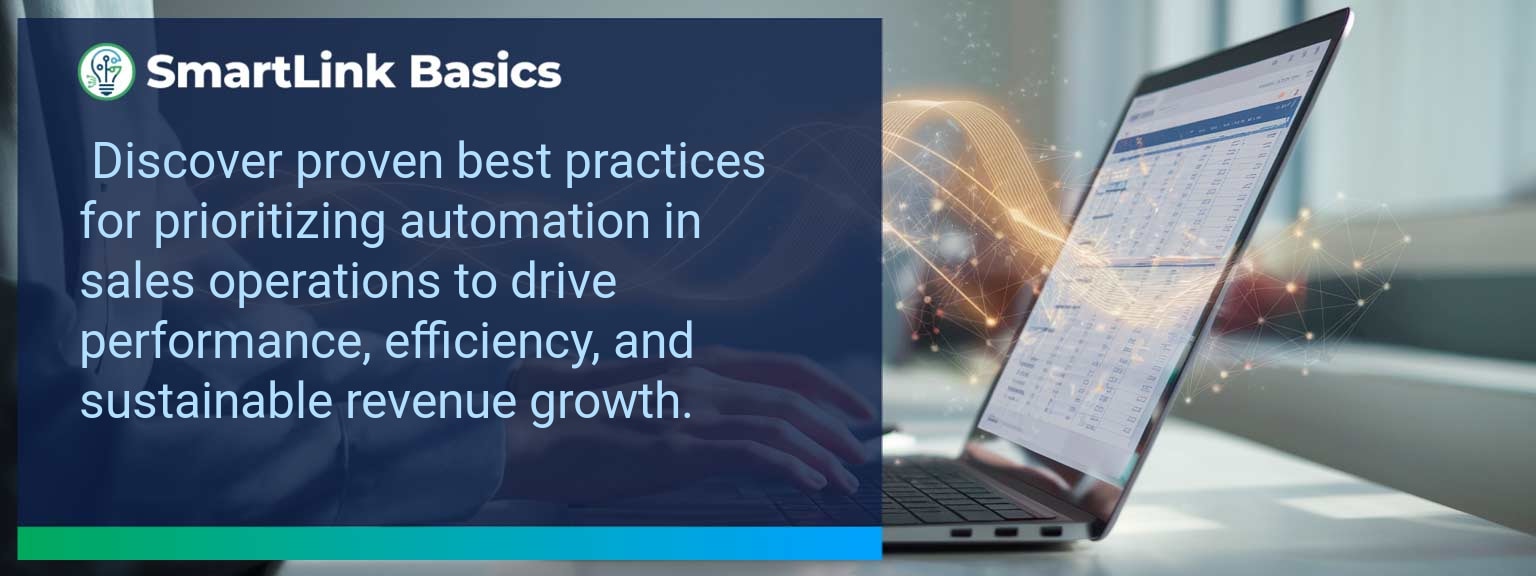Industry data shows that organizations adopting AI-driven automation achieve cost reductions of up to 30% while accelerating sales cycles by 20% or more (McKinsey, 2024). For sales leaders, AI automated workflows now define competitive advantage, enabling teams to reallocate time from repetitive tasks to high-value engagements. At SmartLink Basics, we help decision-makers implement these systems strategically, ensuring they integrate with existing revenue operations. In this article, you’ll see how AI automated workflows power business outcomes, the common obstacles that slow adoption, and practical steps to optimize processes. You’ll walk away with proven examples, a 90-day action blueprint, and measurable KPIs to track results.
- Automate repetitive administrative and CRM updates with AI.
- Integrate machine learning to personalize outreach at scale.
- Streamline approvals, quotes, and contract workflows for speed.
- Use predictive analytics to prioritize sales opportunities.
- Track adoption and performance with targeted metrics.
AI Automated Workflows: What Changed and Why It Matters
AI adoption has shifted from experimental to operational, making automated workflows a standard in high-performing sales organizations. The real advantage lies in combining workflow automation with artificial intelligence workflows to optimize every step of the revenue process. Sales leaders now use AI to synchronize touchpoints, reduce manual inputs, and ensure faster execution. For example, a B2B SaaS leader introduced automated lead enrichment and routing, cutting qualification time by 60%. Actionable insight: Audit processes for time-intensive handoffs and apply AI where repeatability is high.Redesign the Revenue Operating System With AI Automated Workflows
ICP, Segmentation, and Targeting AI-enabled segmentation uses historical wins, firmographic, and behavioral data to dynamically update ICP profiles. This ensures targeting precision without quarterly re-work. Pipeline Architecture Automated workflows push opportunities through the right stages based on engagement signals. AI flags at-risk deals for intervention. Plays and Messaging Integrated automation tools deliver personalized sequences based on buyer activity, increasing relevance at every touchpoint. Operating Cadence AI schedules follow-ups, forecast calls, and account reviews based on actual pipeline movement rather than static calendars. Actionable insight: Implement automation that adapts in real-time to both internal and buyer-driven events.Common Obstacles To Achieving Seamless Automation
The most frequent challenges are fragmented systems, inconsistent data quality, and cultural resistance. Without a unified data layer, automation amplifies errors rather than solving them. Coca-Cola Europacific Partners reported needing a full data governance upgrade before AI could improve sales workflows. Leaders must first assess infrastructure readiness and train teams to trust AI-influenced recommendations. Actionable insight: Before deployment, establish clean data practices and a single source of truth.Implementing AI To Optimize Workflows
Effective deployment of AI process optimization starts with mapping current-state processes, identifying friction points, and matching them with automation tools. For example, automating proposal generation based on CRM opportunity data can reduce turnaround from three days to one hour. Solutions combining business process automation platforms with machine learning integration enable continuous performance improvement. Actionable insight: Pilot in one high-impact stage, measure, and then expand.Tangible Benefits From Automated Processes
The benefits extend beyond time savings — sales leaders gain a scalable system. Tangible outcomes include faster quote-to-close, higher lead conversion, and better forecast accuracy. A manufacturing firm implemented AI-assisted order processing and cut errors by 40%, improving on-time delivery rates. Actionable insight: Track both speed and accuracy to measure workflow automation effectiveness.Metrics That Matter
| Category | Metric | Definition | Target |
|---|---|---|---|
| Leading | Workflow Completion Rate | % of automated sequences executed without manual intervention | 95%+ |
| Leading | AI Suggestion Adoption Rate | % of AI-generated action recommendations executed by reps | 80%+ |
| Lagging | Cycle Time Reduction | Decrease in time from lead entry to closed-won | 20%+ |
| Lagging | Revenue Per Rep | Average sales revenue generated per sales rep per quarter | +15% YoY |
| Quality | Automation Error Rate | % of workflows that trigger incorrect outcomes | <1% |
| Quality | Customer Satisfaction Post-Automation | Average CSAT score after automation implementation | ≥ 4.5/5 |
Innovations And Next Steps For AI Automation
Emerging capabilities like AI-generated playbooks, intent-driven dynamic routing, and integrated AR for virtual product demos are shaping the next wave of sales automation. Companies integrating these tools early will outpace competitors in speed and personalization. Actionable insight: Stay ahead by testing emerging automation features quarterly and aligning them with evolving buyer expectations.Get the 90-day plan, coaching rubric, and dashboard template to operationalize AI in your enablement program.
Turning AI Automation Into a Revenue Multiplier
AI automated workflows are now a strategic lever for predictable, scalable growth. This guide outlined current applications, adoption challenges, a 90-day execution plan, and measurable success criteria. To make automation pay off, sales leaders should integrate tools into one cohesive operating system and review results monthly for continuous improvement. Access more AI-driven sales enablement resources from SmartLink Basics to design a high-performance automation strategy. Strong sales leadership determines whether a team consistently hits revenue targets or falls short. At SmartLink Basics, we see time and again that the highest-performing organizations apply disciplined strategy, rigorous coaching, and deliberate customer engagement practices. This is not about motivational slogans — it is about building measurable, repeatable success. This article explains how modern sales leadership connects performance data, structured sales strategy, and customer engagement to move the revenue needle. You will learn specific ways to overcome team challenges, redesign execution processes, and lead with clarity. The guidance here equips you to refine your sales strategy, strengthen sales team management, and directly boost sales performance.- Align sales leadership priorities with measurable revenue outcomes
- Establish clear customer engagement frameworks for every stage
- Utilize sales metrics to guide coaching and deal strategy
- Implement consistent sales team management cadences
- Continuously adapt sales strategy to changing market signals
Overcoming Sales Team And Market Challenges
Sales leadership teams frequently face competing pressures: short-term targets, unpredictable market shifts, and varying team performance. The challenge is not just reacting to each obstacle, but developing resilient systems that keep performance stable. Leaders who fail to address weak pipeline processes or outdated messaging often see declines in sales performance that compound over time. For example, a mid-sized B2B company struggling with low close rates redesigned their discovery process, improving alignment with customer needs and shortening sales cycles. Actionable insight: Identify one recurring deal-stage issue each quarter, and address it with targeted sales coaching supported by clear sales metrics.Strategic Approaches To Maximizing Sales Performance
High-performing sales leadership requires structured execution. Strategic success starts with clarity in who you serve, how you reach them, and how you maintain deal momentum. ICP, Segmentation, and Targeting – Define your Ideal Customer Profile and segment markets based on revenue potential and conversion likelihood. Tailor outreach per segment to increase engagement effectiveness. Pipeline Architecture – Map lead sources to sales stages with precision. This ensures every contact has a defined next step, reducing leak points. Plays and Messaging – Equip your sales team with account-specific plays and tested messaging frameworks that resonate consistently across touchpoints. Operating Cadence – Set weekly forecast reviews, monthly strategy sessions, and quarterly skill audits to keep teams aligned and accountable.Measurable Wins And Team Growth Insights
Sales leadership excellence is proven through trackable outcomes. Leading metrics (like meeting-to-opportunity conversion) signal future revenue potential, while lagging metrics (like closed revenue) confirm execution success. Quality indicators, such as win rate by segment, reveal where skill or strategy gaps exist.| Category | Metric | Definition | Target |
|---|---|---|---|
| Leading | Meeting-to-Opportunity Rate | Percentage of first meetings converting to qualified opportunities | 45%+ |
| Lagging | Quarterly Closed Revenue | Total won revenue in a three-month period | 110% of quota |
| Quality | Segment Win Rate | Win percentage for opportunities in target segments | 35%+ |
Emerging Trends In Effective Sales Management
Sales leadership practices are evolving to match buyer expectations. Trends include proactive account-based engagement, data-driven sales coaching, and tighter marketing-sales integration. Forward-thinking leaders also prioritize consistent leadership skills development to replicate high performance across managers. A practical move is implementing centralized playbooks that capture best practices, ensuring every team member operates from the same proven framework. This prevents performance variation and accelerates onboarding.Get the 90-day plan, coaching rubric, and dashboard template to operationalize AI in your enablement program.








